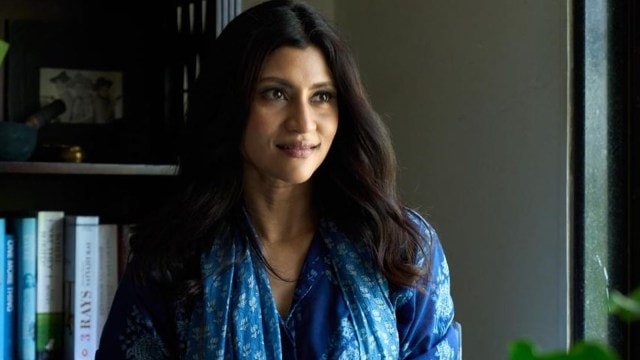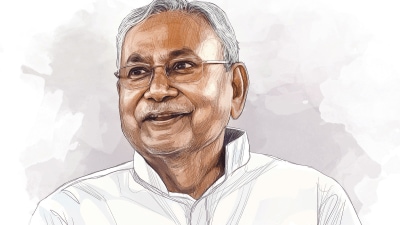📣 For more lifestyle news, click here to join our WhatsApp Channel and also follow us on Instagram
Konkona Sen Sharma says she doesn’t feel ‘female’ all the time: ‘It’s a layer I’ve put on myself’
Counselling psychologist Priyamvada Tendulkar adds depth to this discussion by emphasising the importance of unconditional self-acceptance.
 Explore Konkona Sen Sharma’s reflections on femininity in film (Source: Instagram/Konkona)
Explore Konkona Sen Sharma’s reflections on femininity in film (Source: Instagram/Konkona)Many of us might have felt the need to perform our femininity without even realising it. And we’re not alone. Even Bollywood actor and director Konkona Sen Sharma confesses to feeling similarly.
In a recent interview with film critic Sucharita Tyagi, the acclaimed actor reflected on the portrayal of femininity in Bollywood and the pressures of embodying “hyper femme” ideals on-screen.
Known for her versatility across 50+ films, Konkona described her experience performing in Aaja Nachle, where she played a traditionally feminine role, complete with elaborate attire and styling. She highlighted how Indian cinema often requires female characters to conform to exaggerated ideals of femininity—like voluminous hair and delicate attire—intended to appeal to traditional beauty standards. This idealised version, she notes, is less about natural identity and more about a “hyper femme” construct.
“It is so normalised that we don’t realise its hyper-femme. The default for women is a hyper-femme version of themselves. Like, especially in India. Like hair, for example. The hair is voluminous. Even the clothes. You’re always catering to a notion,” Konkona said.
In discussing how women are frequently expected to present an idealised, desirable self-image, Konkona referenced a thought by Margaret Atwood: the image of oneself that women present is often filtered through an invisible “male gaze.” The result is a dual experience for many women, wherein they navigate the pressures of projecting feminine desirability while privately feeling detached from such hyper-feminised versions of themselves. For Konkona, and many women, this dichotomy becomes especially pronounced at home, where they embrace a more natural, less constructed version of themselves.
“That (male gaze version of herself) is a more hyper femme version of myself. For me, I don’t feel very female all the time. Sometimes you’re just neutral, or you’re just human, or whatever. When I’m at home, my hair is just like up on the side, or even the way I’m dressed. In films, I’ve learnt that. It’s a layer I’ve put on myself. You know, with hair, makeup and wardrobe,” Konkona added.
Counselling psychologist Priyamvada Tendulkar adds depth to this discussion by emphasising the importance of unconditional self-acceptance. This idea encourages individuals to value themselves as they are, free from conditions or qualifications often imposed by societal expectations. For women in particular, this means recognising that self-worth need not be anchored in beauty standards or external validation. Priyamvada advocates for viewing oneself as the “primary consumer” of one’s life, asking questions like, “What would I like to do? What are my aesthetics? What makes me happy?”
Building relationships grounded in acceptance rather than mere approval can further support a sense of intrinsic value. When we seek only the approval of others, especially when this approval aligns narrowly with appearance or achievements, we risk feeling reduced to mere objects of consumption rather than individuals with agency. Priyamvada encourages cultivating an inner circle that values us unconditionally, allowing us to feel appreciated for what we achieve and who we genuinely are.
Recognising oneself as the primary consumer of life’s experiences allows a more fulfilling connection to one’s identity—one that transcends stereotypes and celebrates individuality. For women, this journey toward self-acceptance is a pathway to experiencing life fully, not as products for external consumption, but as individuals embracing authenticity.
📣 For more lifestyle news, click here to join our WhatsApp Channel and also follow us on Instagram





- 01
- 02
- 03
- 04
- 05






















